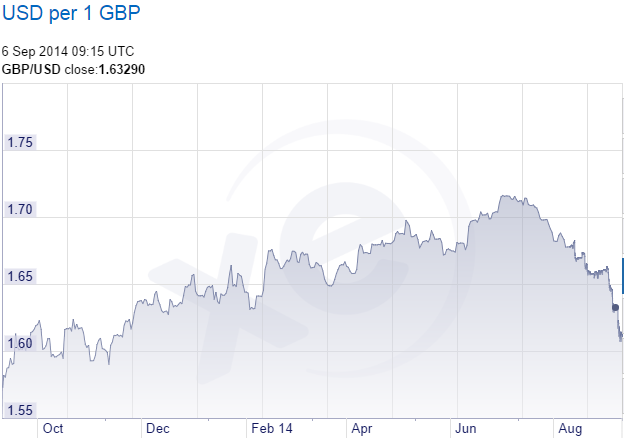Scotland has been part of the United Kingdom for over 300 years. On September 18th, they vote to determine whether they want independence from the Queen or not. The referendum was announced back in 2012 but nobody took it seriously because everybody assumed that it will be a NO vote for independence. But a poll released late Saturday showed pro-independence voters in the lead for the first time since the Scottish referendum campaign began. The British Pound collapsed to a 10-month low once reality dawned on the markets.
Executives from defense, financial-services and energy companies have all voiced concerns for the future shape of their respective industries amid surging support for independence. British defense officials have warned that warship production in Scotland could be affected. Oil and gas companies are worried, for instance, that an independent Scottish government would be more reliant on oil revenue for its budget than the larger U.K. has been. That could provide a temptation to squeeze more tax from companies if production keeps declining and tax revenue shrinks.
Unresolved questions concerning how much the amount of the U.K.’s debt an independent Scotland would assume, and how bond markets would rate that debt have brought huge uncertainty for financial-services companies.
Credit Suisse:
Citi:
So far, market jitters have been largely contained to the FX market. But will this wiggle turn into a wobble?
Sources:
